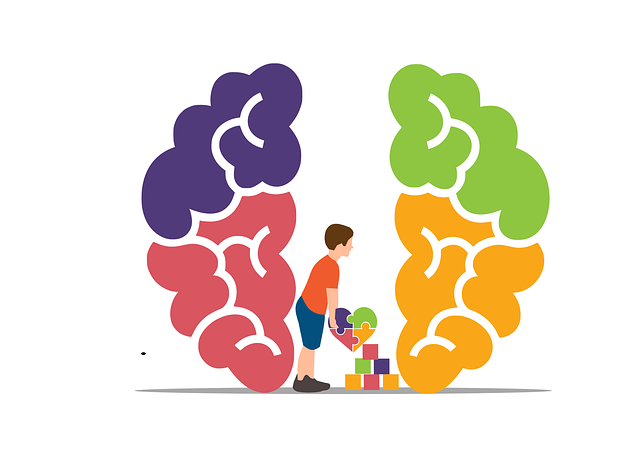Mental health diagnoses involve expert evaluations using diagnostic manuals like DSM-5. Golden Chronic Illness Therapy offers a holistic approach, focusing on mood management, resilience building, and burnout prevention for both patients and healthcare providers. This therapy recognizes the unique needs of individuals with chronic mental illnesses, employing techniques like positive thinking, self-care, and stress reduction to enhance overall well-being. By fostering resilience and personalizing treatment options, it addresses underlying causes rather than just symptoms, ultimately improving long-term mental wellness. Engaging in self-care strategies is crucial for building coping mechanisms and emotional regulation.
Mental illness diagnosis and treatment navigation can be a complex and overwhelming process. This article aims to demystify this journey through four key sections. We explore ‘Understanding Mental Health Diagnoses’ to shed light on the evaluation process. Next, we delve into ‘The Golden Rule’ of chronic illness therapy approaches, emphasizing their effectiveness. ‘Navigating Treatment Options’ offers a comprehensive guide to help readers choose the best care paths. Finally, ‘Building Resilience’ presents self-care strategies for long-term mental wellbeing, integrating essential Golden Chronic Illness Therapy principles.
- Understanding Mental Health Diagnoses: Unraveling the Process
- The Golden Rule: Chronic Illness Therapy Approaches
- Navigating Treatment Options: A Comprehensive Guide
- Building Resilience: Self-Care Strategies for Long-Term Wellbeing
Understanding Mental Health Diagnoses: Unraveling the Process

Understanding Mental Health Diagnoses: Unraveling the Process
Mental health diagnoses are complex and multifaceted, requiring a thorough evaluation by qualified professionals. The process involves assessing symptoms, conducting comprehensive interviews, and reviewing medical history to identify specific disorders. This journey often begins with recognizing subtle changes in behavior or emotions that may indicate an underlying issue. Professionals like psychiatrists, psychologists, and therapists employ various assessment tools and criteria outlined in diagnostic manuals, such as the DSM-5 (Diagnostic and Statistical Manual of Mental Disorders), to make accurate determinations.
Golden Chronic Illness Therapy plays a pivotal role in helping individuals navigate this process. Through evidence-based practices, therapists assist patients in managing symptoms, developing coping strategies, and enhancing overall well-being. Key aspects include mood management techniques, resilience building, and burnout prevention strategies for healthcare providers, ensuring a holistic approach to mental health care.
The Golden Rule: Chronic Illness Therapy Approaches

The Golden Rule when it comes to chronic illness therapy is understanding that each individual’s journey is unique. What works for one person may not be effective for another, so a personalized approach is essential. The goal is to empower individuals with the tools and strategies they need to manage their mental health effectively. Chronic mental illnesses often require long-term management, making it crucial to adopt a holistic perspective that incorporates various therapy techniques.
Positive thinking, self-care practices, and self-esteem improvement are fundamental aspects of Golden Chronic Illness Therapy. Encouraging patients to cultivate resilience and optimism can significantly impact their overall well-being. Additionally, incorporating strategies for stress reduction and fostering healthy coping mechanisms can enhance an individual’s ability to navigate the challenges associated with chronic mental health conditions.
Navigating Treatment Options: A Comprehensive Guide

Navigating treatment options for mental illness can be a complex and daunting task. With various therapies, medications, and support systems available, it’s easy to feel overwhelmed. However, understanding your condition and exploring tailored solutions is key to improving mental wellness. A comprehensive guide can help individuals make informed decisions, ensuring they receive the most effective care.
The journey begins with recognizing symptoms and seeking professional assistance. Mental health professionals play a pivotal role in diagnosing and offering specialized treatments like Golden Chronic Illness Therapy, renowned for its holistic approach. This therapy focuses on emotional regulation and stress management, addressing underlying causes rather than merely treating symptoms. Additionally, leveraging resources from the Mental Wellness Podcast Series Production can provide valuable insights and guidance through engaging content designed to enhance understanding and promote active participation in one’s mental health journey.
Building Resilience: Self-Care Strategies for Long-Term Wellbeing

Building resilience is a key aspect of managing mental illness and fostering long-term mental wellness. Self-care strategies play a pivotal role in this process, enabling individuals to navigate their chronic illness with greater ease. By integrating a structured self-care routine development for better mental health into daily life, one can enhance their coping mechanisms and overall resilience. This includes activities such as regular exercise, mindfulness practices, adequate sleep hygiene, and engaging in hobbies or creative outlets that bring joy and relaxation.
Golden chronic illness therapy emphasizes the importance of nurturing oneself both physically and emotionally. Trauma support services often recommend self-care as a crucial tool for processing past traumas and managing their impact on mental health. By prioritizing these practices, individuals can build a robust foundation of mental wellness, better equipped to handle life’s challenges and navigate their treatment plans effectively.
Mental illness diagnoses and treatment can be a complex journey, especially with chronic conditions. However, understanding the process and leveraging effective therapy approaches like Golden Chronic Illness Therapy provides a roadmap to navigating these challenges. By arming yourself with comprehensive guides and adopting self-care strategies, you can build resilience and foster long-term wellbeing. Remember, every step forward, no matter how small, is a victory in this journey of mental health management.














